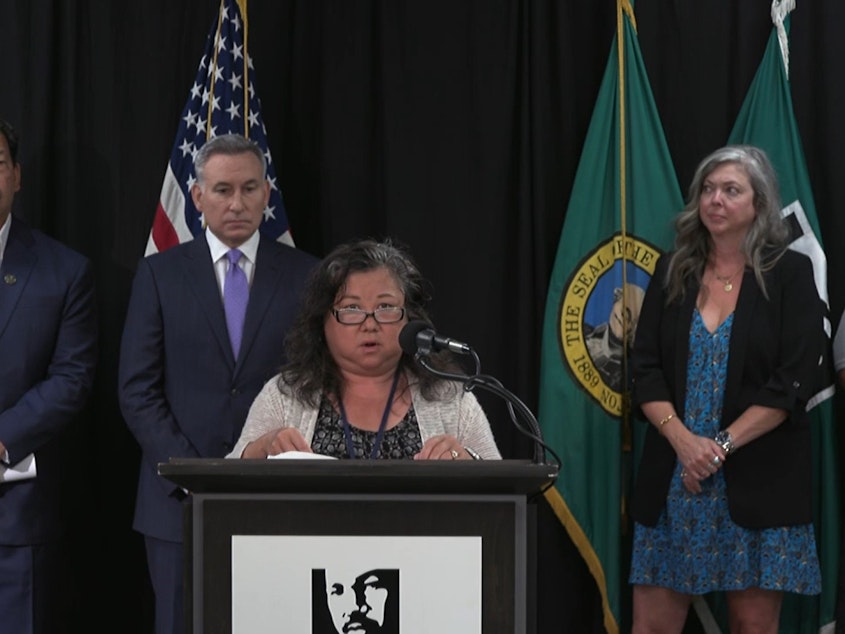King County will propose new facilities to serve people in behavioral health crisis

King County officials said Thursday that current resources for people in behavioral health crisis are at a breaking point, and they are seeking to open more facilities to serve them.
The plan will include proposed walk-in facilities for people who need “urgent care” related to mental health or addiction, as well as longer-term residential options.
King County Executive Dow Constantine said he has brought together a coalition including legislators, law enforcement and service providers to deliver policy proposals to the King County Council alongside the proposed budget next month. They will focus on adding more same-day care, more beds, and workforce development.
Constantine said there’s currently no walk-in facility for people in crisis in King County, which forces people to go to hospital emergency rooms to seek care. He said King County has lost one-third of its mental health beds in the past five years and there’s just one 16-bed behavioral health crisis facility where hospitals and first responders can currently refer people.
Leo Flor is the director of the King County Department of Community and Human Services. He said a coalition of stakeholders will flesh out details very soon. He acknowledged that changing the situation will not involve “a small amount of money.”
“Our task over the next few weeks is to work with this coalition and others who are not in the room to get specific about how many facilities, where they should be, what more services they might need, and then to propose what it would cost,” he said.
Sponsored
Flor said the county expects to award contracts to run the facilities. Officials didn’t address potential funding sources.
Several members of the coalition said they were impressed by the crisis care facilities they saw on a recent trip to Arizona, on a tour organized by State Rep. Tina Orwell and State Sen. Manka Dhingra, and they hope to draw on that example.
Naomi Morris is a nurse who works at the Downtown Emergency Services Center to keep people in crisis out of jail and emergency rooms. She said people in crisis can recover, but they need places to go and staff to help them.
Morris said her uncle had schizophrenia and struggled until he ultimately found care later in life.
“And the last 15 years of his life we got to watch him be stable and enjoy a beautiful end. And I would love to see that be the same for the people I serve," Morris said.
Sponsored
She added, “But to provide that opportunity to them, you have to support us.”
Morris said outreach workers are currently overwhelmed by excessive caseloads.
Constantine said ultimately he hopes some funding can be reallocated from hospital emergency rooms and jails, where a significant portion of the population has behavioral health issues, “to pay for increased behavioral health treatment.”
But he said that would only happen once the new systems are having an impact.
“You need to move upstream and invest in solutions first, and then when you yield results, it allows you to reduce the money you’re spending on those bad outcomes," Constantine said.




